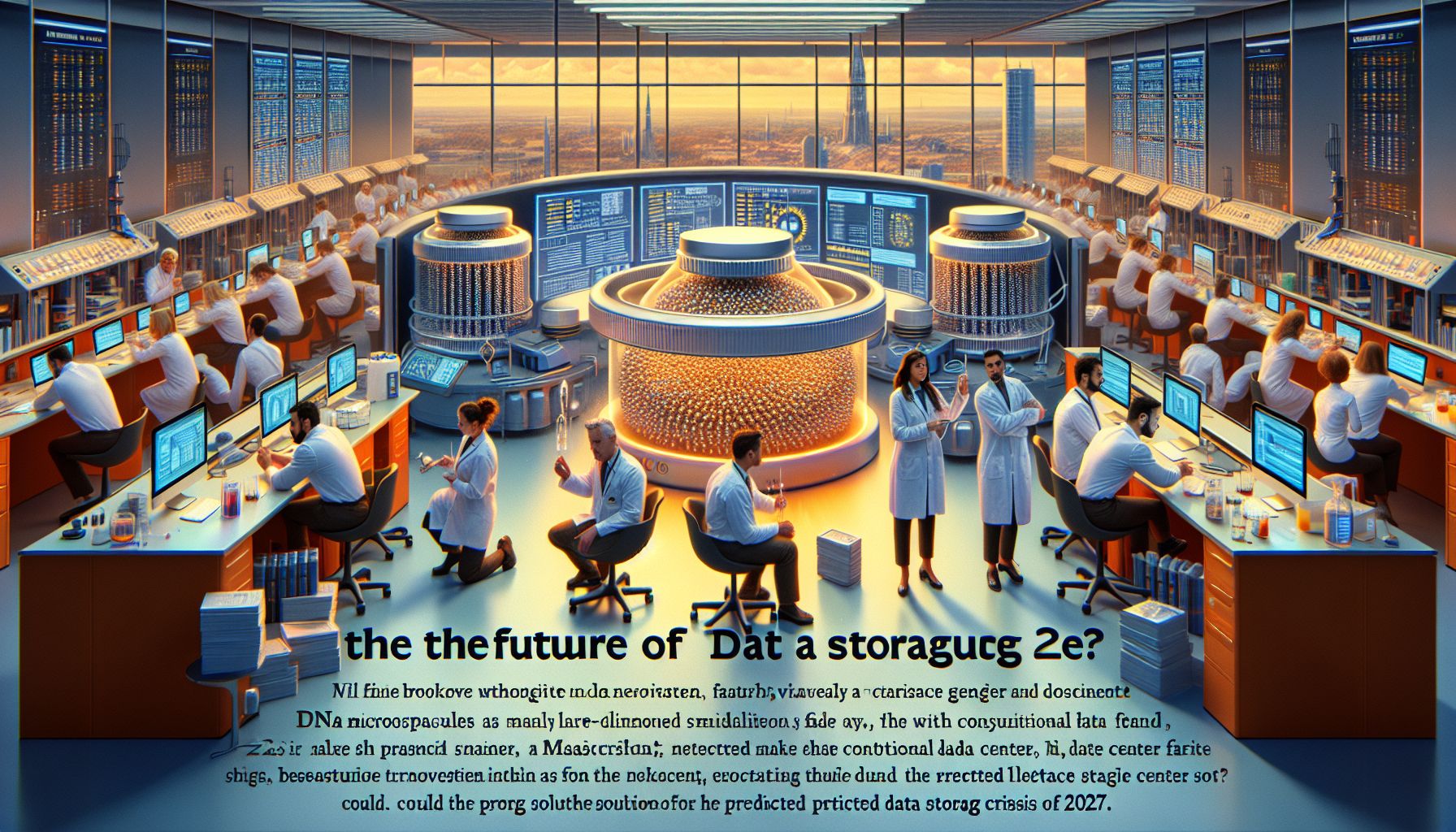DNA Microcapsules: The Future of Data Storage

Maastricht, Wednesday, 11 September 2024.
Researchers at Maastricht University are pioneering a revolutionary data storage solution using DNA microcapsules. This innovative technique could render large data centers obsolete, potentially solving the looming data storage crisis predicted for 2027.
Understanding DNA Microcapsules
DNA microcapsules are an advanced data storage solution that leverages the compact nature of synthetic DNA to store vast amounts of information in a minimal physical space. The technique involves encoding data into synthetic DNA strands, which are then encapsulated within microscopic capsules. This method is particularly suitable for archival storage, where data access is infrequent but longevity and stability are critical. Researchers from the Department of Biomedical Engineering and the Institute for Complex Molecular Systems (ICMS) at TU Eindhoven, led by De Greef, have developed this scalable DNA storage technique[1].
New PCR Techniques
The core of this innovation lies in the application of Polymerase Chain Reaction (PCR) techniques, which are traditionally used in biotechnology for amplifying DNA sequences. However, adapting PCR for data storage poses significant challenges due to the error-prone nature of multiple file reads. De Greef’s team has addressed this by developing ‘thermo-confined PCR,’ a method that allows simultaneous reading of 25 files with minimal error. This advancement significantly reduces data degradation, with only a 0.3% quality loss after three reads, compared to 35% using previous methods[1][2].
Industrial and Academic Collaboration
The development of DNA microcapsules is a collaborative effort involving multiple institutions and industrial partners. Notably, Microsoft, the University of Washington, Radboud University, University of Bristol, and Shanghai Jiao Tong University have contributed to this research. The diverse expertise from these partners has been instrumental in overcoming the technical hurdles associated with DNA data storage[1][2].
Potential Impact on Data Centers
One of the most compelling benefits of DNA microcapsules is their potential to make large data centers redundant. As De Greef points out, we are approaching a data storage crisis where current technologies will be unable to meet the demand. DNA microcapsules offer a solution by providing a high-density, long-term storage medium that can be stored in much smaller physical spaces. This could lead to significant reductions in the environmental footprint of data storage facilities, aligning with global sustainability goals[1][2].
Future Prospects
The researchers are optimistic about the future of DNA data storage. De Greef anticipates the establishment of the world’s first DNA data center in the Netherlands as soon as the costs of DNA synthesis decrease. This milestone would mark a significant step forward in data storage technology, potentially transforming how we store and manage information in the digital age. The research paper detailing these advancements, titled ‘DNA storage in thermoresponsive microcapsules for repeated random multiplexed data access,’ has been published in Nature Nanotechnology[1].
Conclusion
In summary, the innovative use of DNA microcapsules for data storage represents a significant leap forward in addressing the impending data storage crisis. By harnessing the compact and stable nature of DNA, researchers are paving the way for more sustainable and efficient data storage solutions. As the technology matures and becomes more cost-effective, it holds the promise of revolutionizing the field of data storage, making the vision of DNA-based data centers a tangible reality.

